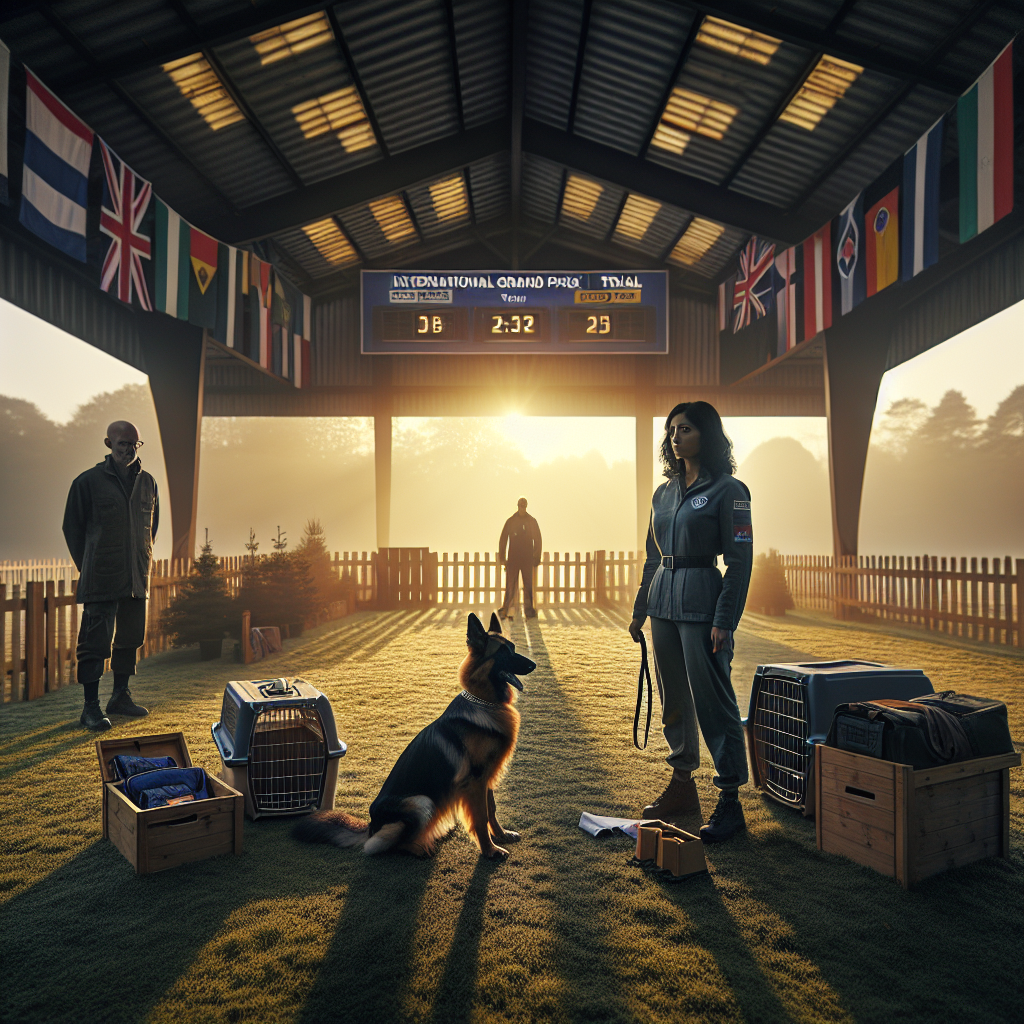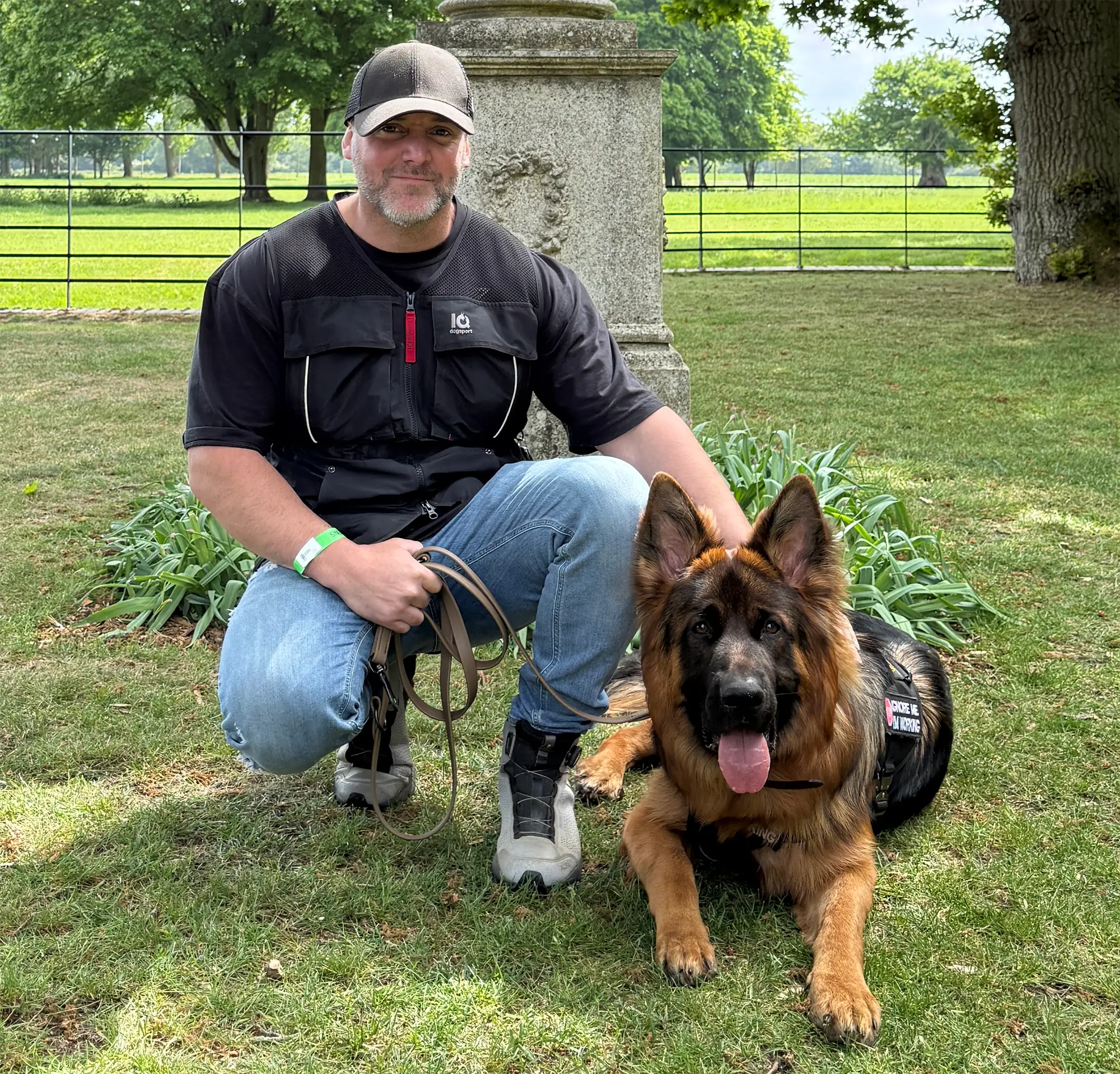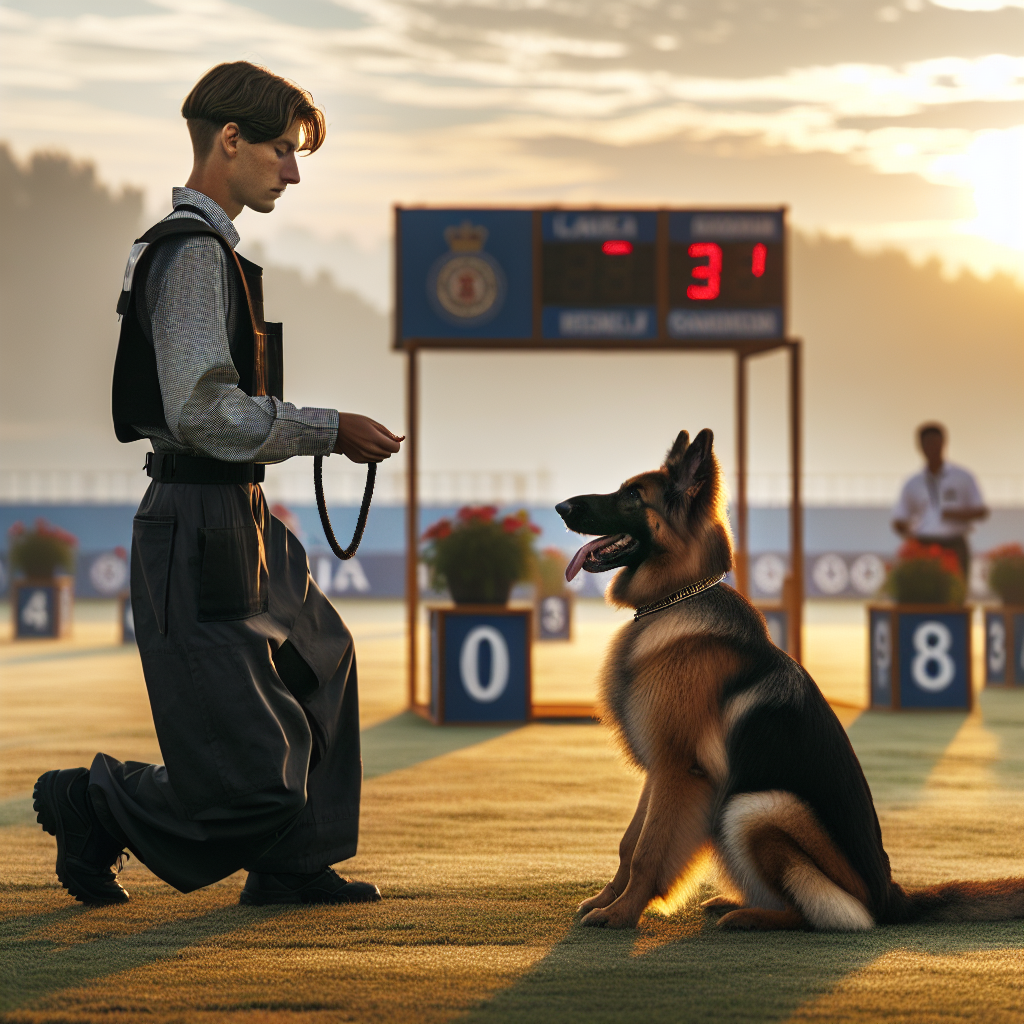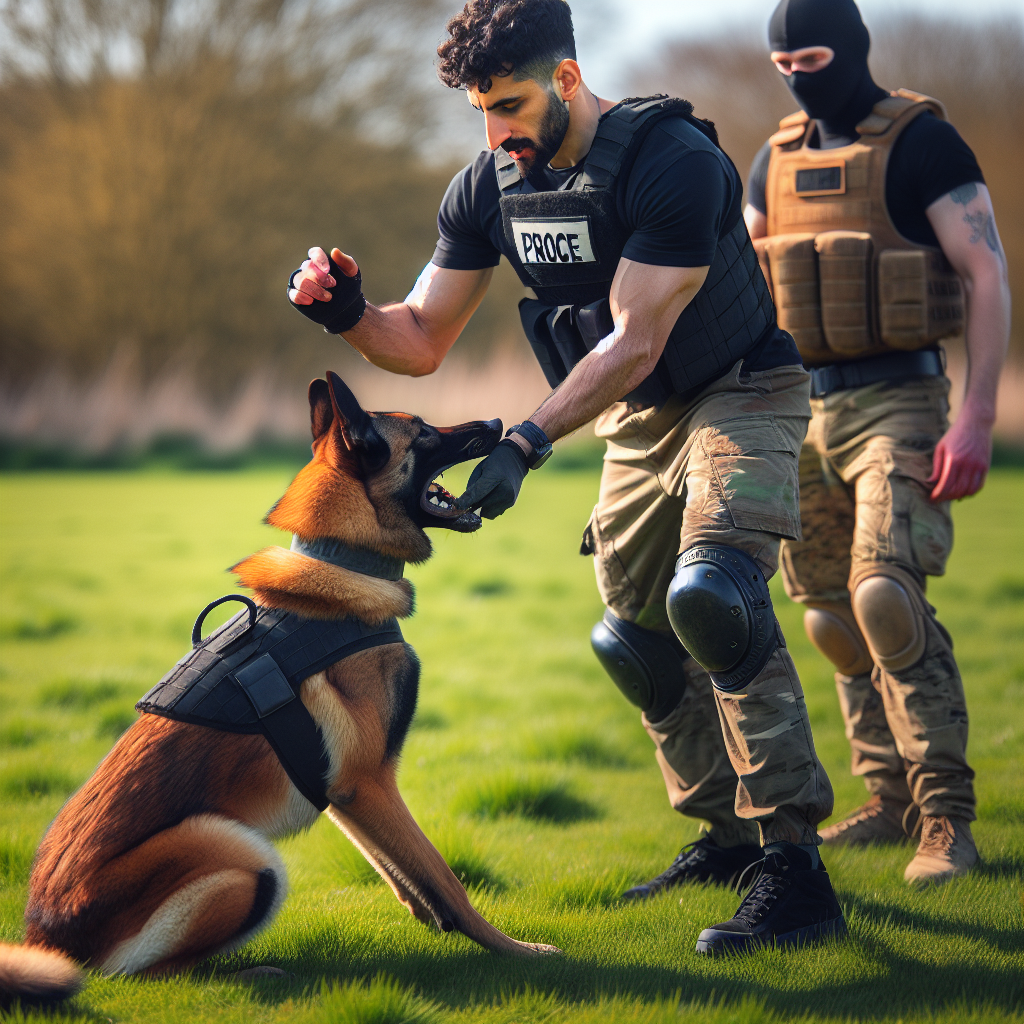Trial Support Teams for New Handlers

Understanding Trial Support Teams for New Handlers
Stepping onto the field for your first dog sport trial can feel intense. There are rules to follow, routines to remember, and emotions to manage. Trial support teams for new handlers remove the guesswork. With Smart Dog Training you get a proven structure rooted in the Smart Method, guided by a certified Smart Master Dog Trainer. Our system builds confidence, protects performance, and lets you focus on handling while your team handles the rest.
Trial support teams for new handlers do more than cheer from the sidelines. They manage logistics, shape warm ups, control arousal, track time, and protect ring etiquette. Every step is planned so your dog knows what to do and you know what to say. When the plan is clear, results follow.
Why New Handlers Need a Team
Most first trial mistakes are not training mistakes. They are planning mistakes. The dog enters the ring over aroused. The handler forgets a piece of kit. Warm up runs too short or too long. Trial support teams for new handlers fix these problems before they appear.
- They keep your routine steady when nerves spike.
- They set the warm up so arousal hits the sweet spot.
- They hold you to timing and ring rules.
- They record video and capture scores for real review.
- They protect your dog from well meaning crowds and distractions.
This is how Smart Dog Training runs every trial day for new handlers. We build certainty so your dog can give you clean, reliable work.
How the Smart Method Shapes Your Support Team
Smart is not a loose collection of tips. We use the Smart Method to build trial support teams for new handlers with the same structure we apply to training.
- Clarity. Everyone knows their role, their cues, and their timing.
- Pressure and Release. Fair guidance before and after each phase. Zero chaos. Clear end to work followed by rest and reward.
- Motivation. Rewards, play, and praise are used with purpose, not chance.
- Progression. We rehearse the plan in layers until it holds under trial pressure.
- Trust. Your dog trusts you. You trust your team. The team trusts the process.
With a Smart Master Dog Trainer leading the plan, the whole day flows. You do not guess. You execute.
Key Roles Inside Trial Support Teams for New Handlers
Great teams are simple teams. We assign clear roles so no one overlaps and nothing gets missed.
Lead Coach
A certified SMDT leads your plan. This person owns timing, warm up intensity, and last minute decisions. The coach keeps you centered and speaks for the team. When uncertainty hits, you listen to one voice.
Obedience Spotter
The spotter watches posture, heel position, and transitions in warm up. They check focus and advise small tweaks before you enter the ring. They hold your leash, mind your line, and keep the bubble around you and your dog clear.
Tracking Support
For tracking phases the support role manages line prep, article reward routine, and start line etiquette. They confirm terrain notes and wind direction so you avoid last minute surprises.
Protection Liaison
In protection work the liaison ensures warm up stays safe and tight. They manage tug choice, drive capping, and transport to and from the crate. They keep communication calm and short so your dog stays balanced.
Coordinator
The coordinator watches the board, checks running order, and tracks time. They collect numbers, confirm judge briefings, and ready your kit. They also keep notes for the post trial review.
Videographer and Data Lead
This role captures every phase from a good angle and logs times, scores, judge comments, and handler notes. The video is a tool. Without it you guess. With it you progress.
Welfare and Logistics
This person guards crate rest, shade, water, and toilet breaks. They watch paw health, temperature, and surfaces. If the welfare plan is tight, performance holds steady across the day.
Selecting the Right People
People make the plan. Choose for calm energy, clear speech, and respect for ring rules. Trial support teams for new handlers work best with small groups who speak in short, simple cues. Your team should know your dog’s reinforcement history and your command system. If someone tends to add last minute ideas, they should not be in the core team.
Smart Dog Training assigns roles based on your aims and your dog’s needs. You get a team that thinks ahead so you can stay in the moment.
Briefing Your Team
We run a ten minute briefing before travel and again on arrival. The coach sets jobs, hand signals, phrases, and fallback plans. This is where clarity lives. Everyone repeats the plan back so nothing is missed. Trial support teams for new handlers should use the same language across training and competition so the dog experiences one story.
Six Weeks Out The Smart Build Up
Success starts long before the trial. We layer the plan with progression so it feels normal on the day.
- Week 6 to 4. Run full sequences in training fields that mimic the trial. Introduce a strict arrival routine and a standard warm up.
- Week 4 to 2. Add crowds, novel helpers, and variable surfaces. Practice check in and kit checks. Run a mock score system.
- Week 2. Rehearse the entire day timeline. Film everything. Identify weak points and fix them.
- Final 7 days. Reduce volume, maintain crisp quality, and protect your dog’s joints and mind. No new skills. Only rehearsals.
Trial support teams for new handlers use this timeline to drive calm confidence. It is the Smart Method in action.
The Final Week Checklist
- Health check with your vet if required by the event.
- Food, treats, tugs, and water portioned for the day.
- Crate, covers, ground mat, shade plan, and cooling gear if needed.
- Tracking line, articles, dumbbells, and any permitted equipment.
- Scorebook, membership cards, and identification.
- Printed run order, contact numbers, and venue map.
- Weather plan for heat, cold, wind, and rain.
Smart Dog Training supplies a custom list for each team. We trim weight and double check the items that matter so you move lighter and faster.
The Night Before
Keep it boring. Keep it early. Prepare the car, pack the kit, and charge devices. Walk your dog on lead, then rest. Visualize your routine with your coach. Sleep.
Arrival and Check In
Trial support teams for new handlers follow a simple flow on arrival.
- Park in shade or create shade. Set the crate and ground mat.
- Check in, collect your number, and confirm your order.
- Walk the venue perimeter. Note surfaces and wind.
- Short toilet break for the dog. Back to rest.
- Team briefing. Confirm timings with the coordinator.
We do not wander. We do not over socialize. The welfare lead guards the bubble around your dog so focus stays intact.
Warm Up That Works
Warm up is not random play. It is a measured routine you have practiced for weeks. Smart sets time windows based on your run order. We blend engagement, skill reminders, and state control. The aim is a dog that is keen, clear, and ready to listen.
- Phase 1. Two to three minutes of engagement games and quick obedience markers.
- Phase 2. One to two minutes of precision reps with high value rewards.
- Phase 3. One minute of calm holds and breath work for the handler.
- Phase 4. Rest and cover until your call.
Trial support teams for new handlers hold you to this plan. The coach adjusts by seconds, not minutes, so you hit the ring at the right arousal level.
Ring Etiquette and Communication
Respect for ring rules protects your result. Your team stays quiet. Phones stay away from ring edges. The coordinator watches the judge and stewards to cue you at the right time. You speak short commands. You exit the ring with grace, reward only when allowed, and then head to your rest zone. Trial support teams for new handlers reduce noise so the dog hears only you.
Between Phases
What you do after each phase shapes the next one. Smart runs a repeatable cycle.
- Mark the end. One clear marker to tell your dog work is over.
- Reward smart. Use the right reward at the right intensity.
- Recover. Short walk then crate rest with water.
- Review. The coach gives one or two notes. No big talks.
- Reset. Prepare the next phase kit and timing.
Trial support teams for new handlers protect recovery. This is where many new handlers leak performance. We do not.
Tracking Phase Support
Clean starts win tracks. The tracking support role sets the line, checks wind, and cues you into the start with calm hands. After each article the liaison helps you run the Smart release and reward routine. We keep steps and tone identical to training.
Obedience Phase Support
Obedience lives on rhythm. The spotter watches your heel lines, turns, sits, and downs in warm up. The coach sets the last cue before you enter. After you exit the ring we run the short debrief, reward, and rest. Trial support teams for new handlers keep the tempo steady so the dog trusts the pattern.
Protection Phase Support
Protection needs tight arousal control and perfect safety. The liaison manages toy choice and play force, then caps drive with short obedience. The welfare lead checks paws and hydration. You enter with calm energy and leave with a crisp end marker and a clear path to the crate. The team protects structure so intensity never becomes chaos.
Common Pitfalls for New Handlers
- Over warming the dog until focus breaks.
- Too much talking before entering the ring.
- Changing routines on the day.
- Too many helpers giving advice at once.
- Letting the dog greet strangers between phases.
- Missing call times due to poor coordination.
Trial support teams for new handlers prevent each of these. The Smart plan is simple, repeatable, and calm.
Kit and Tools Your Team Should Bring
- Travel crate with cover and ground mat.
- Water, bowl, and measured food.
- Lead, backup lead, and lines for tracking.
- Primary and backup toys, plus low value treats.
- Towels, wipes, and paw balm.
- Weather gear for you and your dog.
- Printed plan, pens, and tape for marking.
- Phone tripod or gimbal for steady video.
Smart Dog Training helps you trim the list to the essentials for your sport and level.
Small Teams and Remote Support
Not every event allows a large crew. Smart adapts trial support teams for new handlers to fit. With a two person team the coach carries timing, the welfare lead manages logistics, and both share video duties. If you travel alone, we set up a remote check in with your SMDT, build a strict schedule, and prepare a self filmed video plan. You stay supported even when you are the only one on site.
Sample Smart Trial Day Flow
- Minus 120 minutes. Arrive, set crate, check in, venue walk.
- Minus 90 minutes. Team briefing, kit check, first toilet break.
- Minus 60 minutes. First warm up block, simple engagement, short rest.
- Minus 30 minutes. Final warm up, two precision reps, calm hold.
- Minus 10 minutes. Leash off if allowed, last cue from coach, enter focus.
- Post phase. Reward, rest, short review, reset for next phase.
Trial support teams for new handlers run this with clockwork accuracy. Consistency reduces stress and builds trust in the process.
Measuring Success and Driving Progression
We do not guess. We measure. The data lead logs times, scores, judge comments, and your self ratings for nerves and focus. In your next training block the SMDT builds drills to fix the weak links. Over time your team does less and you do more. That is Smart progression at work.
How Smart Dog Training Supports You
Smart provides the plan, the people, and the progression. You get a certified Smart Master Dog Trainer to lead your build up, craft your trial day routine, and review your performance with real data. Trial support teams for new handlers become an engine for long term success, not a one off fix.
Ready to turn your dog’s behaviour around? Book a Free Assessment and connect with a certified Smart Master Dog Trainer - available across the UK.
FAQ Trial Support Teams for New Handlers
What is a trial support team
It is a small group led by Smart Dog Training that manages your plan on trial day. Roles cover coaching, welfare, timing, and review so you can focus on handling.
Do I need a big team for my first trial
No. Two skilled people can cover the plan. With Smart you can also run a solo plan supported by remote check ins and a strict schedule.
How early should I build my team
Start six weeks before your trial. That gives time to rehearse the routine and fix weak links. Trial support teams for new handlers need reps just like the dog.
Will a team make my dog dependent
No. The Smart Method uses progression. As your handling improves the team steps back. You keep the routine but own more of it each event.
What if my venue has strict access rules
We adapt. Your SMDT sets a micro plan with fewer people and clear hand offs outside restricted areas. The structure stays the same.
Can Smart help after a bad trial
Yes. We run a calm review with video, identify the single biggest lever, and rebuild your next plan. Trial support teams for new handlers turn setbacks into progress.
What should I do if my dog gets distracted before entering
Use the pre planned engagement block and protect your space. Your spotter maintains the bubble while your coach cues one short focus routine. Then back to calm until your call.
How do we handle weather changes on the day
We bring a heat and cold plan. Shade, airflow, and water for heat. Warm layers and longer rest for cold. The coordinator adjusts timing to protect performance.
Conclusion
Trial support teams for new handlers remove uncertainty, protect welfare, and raise performance. Led by the Smart Method, your team gives you clarity before the whistle and calm after the final routine. With a certified Smart Master Dog Trainer steering the plan, your first trial becomes a launchpad for consistent success. Build the team, trust the structure, and let your dog shine in the ring.
Your dog deserves training that truly works. With certified Smart Master Dog Trainers (SMDTs) nationwide, you'll get proven results backed by the UK's most trusted dog training network. Find a Trainer Near You



